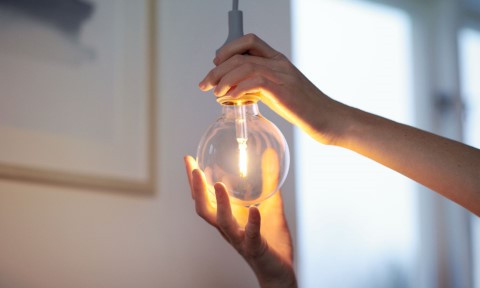Consumers in Europe are tackling the energy crisis by a mix of small behavioural changes in their everyday life, but also by investing in energy efficiency measures. Among age groups, younger people between 18-35 years have so far been least likely to change their behaviour in daily life to save energy. Compared to other countries, the French seem to have adapted most in their efforts to consume less energy while the most innovative consumers live in the Netherlands. These are some of the results in Vattenfall’s new energy savings barometer.
“The results show that customers perceive the energy crisis to be overcome by joint social efforts. It is the sum of small and big steps that will help to keep prices under control in the short run and transform our energy system towards a fossil free future,” says Martijn Hagens, Head of Customers & Solutions and Heat at Vattenfall.
On behalf of Vattenfall, research institute Statista surveyed a total of 5,000 representatively selected consumers in Germany, Finland, France, Sweden and the Netherlands between 13 and 23 January.
According to the results, nine out of ten consumers are concerned or very concerned about the high energy prices. French consumers are worried the most, fearing that the situation will continue to worse. The Finns and the Dutch are slightly more optimistic. There, almost every second consumer believes that prices will remain the same or decrease in the future.
Consequently, nine out of ten consumers consider it as relevant or very relevant to lower their energy consumption. This is mainly due to financial considerations: For more than 90 percent of respondents, the main motive for saving energy is to save money. Over 70 percent agree that they lower their energy use to protect natural resources while more than 65 percent do it to be less energy dependent from other countries. The French show the highest motivation to save energy for environmental and climate reasons among all five countries.
“Wholesale energy prices have gone down recently and each kilowatt hour of gas and electricity that is saved can have a positive impact,“ says Martijn Hagens.
According to newly released figures from Eurostat, gas consumption in the European Union fell by almost 20 percent between August 2022 and January 2023.
People between 18 and 35 years have so far been the least likely age group to change their behaviour in daily life to reduce energy consumption. This is a trend that can be observed in all countries. Older generations more often experienced various crises in the past. This could mean that they are more used to adapt to restrictions during certain periods. Younger people have also taken fewer investments in small-scale energy saving measures such as using LED lights compared to all other age groups. This age gap disappears among house owners, that most often invested in insulation, heating and solar panels.
But young consumers do not live wastefully in terms of energy resources either. Even if a smaller proportion has implemented specific measures, they show a high willingness to adapt their daily behaviour and to invest in energy efficient features in the future. This age group also shows a high degree of optimism. They expect the biggest energy savings from the measures taken. The older people are, the more sceptic they become that their measures will actually help to save energy.
Among house owners, the picture differs per region. The majority of house owners in the Nordic countries (54 percent) made investments in heat from renewable sources – for example with a heat pump. In the countries surveyed in Continental Europe, the majority of investments goes into the insulation of houses, more than half took this measure. Solar panels are especially attractive in the Netherlands, 47 percent of house owners made an investment already. Sweden and Finland can expect a higher demand for solar panels, around two thirds of house owners are willing to invest in this technology in the future. A high demand for heat pumps can be expected for Germany and for the Netherlands, more than 55 percent are willing to invest in renewable heating.
According to the survey, the most innovative consumers live in the Netherlands. Their homes are most often equipped with energy-efficient technology both with features that can be easily implemented and by having insulated their homes and installed solar panels.
When it comes to governmental investments, most consumers would like states to invest in building fossil free infrastructure and mentioned this as their preferred solution. The support for building fossil free infrastructure is highest in Sweden (35 percent) and Finland (30 percent). Among German consumers, the most favoured governmental measure is direct support to households to reduce the financial burden for them (23 percent), closely followed by investments in fossil free and decentralised infrastructure.
More results from the survey:
To consume less energy, consumers have made a wide range of behavioural changes in their everyday life:
- Using less light was most often mentioned as reduction measure in Sweden (77 percent), Finland (80 percent) and France (81 percent)
- 80 percent of Germans cook with a lid
- 82 percent of Dutch consumers reduced the temperatures in their homes
- Consumers in the Nordics are less flexible to adapt their heating behaviour. Around 60 percent of people reduce temperatures at home or heat only the most frequently used rooms (nearly half of respondents)
- More than two out of three take shorter showers. And one out of three take cold showers, the Finns most often implemented this measure (41 percent)
- About a quarter go to bed earlier than they used to do
Many consumers have also made small and medium-sized purchases:
- More than 72 percent switched to LED lights
- 70 percent of Germany purchased power stripes with
- off switches, only 42 percent of Swedes did that 56 percent of Dutch people bought a water-saving shower head. In Finland, only 33 percent of consumers made such an investment


